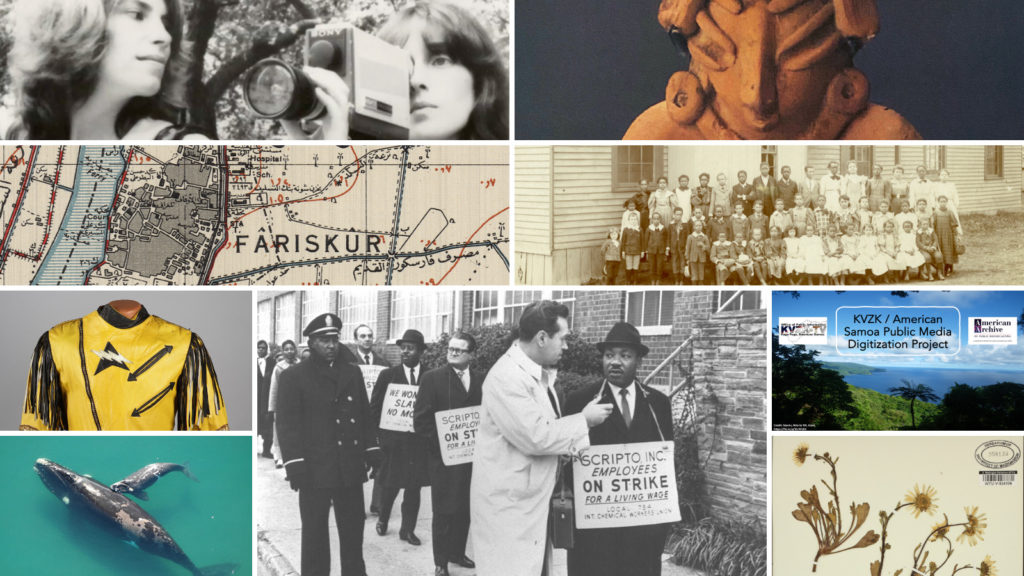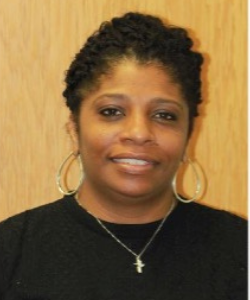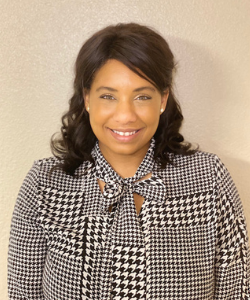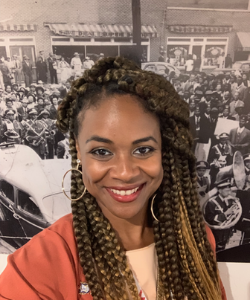
Number 140 March/April 2021
ISSN 1944-7639 (online version)
Contents
CLIR’s Digitizing Hidden Collections Program Awards 4.02 Million to 16 Projects
Call for Proposals: DLF Forum 2021 and Affiliated Events
Researchers Named for HBCU Library Alliance/CLIR Study
Watch for Material Memory Season 2 Conclusion
COVID (Re)Collections: A Year’s Perspective
Your Input Wanted: Help Us Shape a New Publication Series
CLIR Issues is produced in electronic format only. To receive the newsletter, please sign up at https://www.clir.org/pubs/issues/signup. Content is not copyrighted and can be freely distributed.
Follow us on Twitter @CLIRNews, @CLIRHC, @CLIRRaR, @CLIRDLF
Like us on Facebook @CLIRNews
CLIR’s Digitizing Hidden Collections Program Awards $4.02 Million to 16 Projects
Twenty-eight institutions located in nineteen U.S. states and one U.S. territory will be involved in projects awarded funding by the 2020 Digitizing Hidden Special Collections and Archives grant cycle. Announced in late March, the 16 projects cover subjects ranging from hip hop, fashion, and public media to plant specimens and whale reproduction. See the full list of projects and summaries.
 This is the sixth group of projects supported by the Digitizing Hidden Special Collections and Archives awards program, which is generously funded by The Andrew W. Mellon Foundation. The Digitizing Hidden Collections program, successor to the Cataloging Hidden Special Collections and Archives program, supports the creation of digital collections that contribute to broad representation and a more complete understanding of history.
This is the sixth group of projects supported by the Digitizing Hidden Special Collections and Archives awards program, which is generously funded by The Andrew W. Mellon Foundation. The Digitizing Hidden Collections program, successor to the Cataloging Hidden Special Collections and Archives program, supports the creation of digital collections that contribute to broad representation and a more complete understanding of history.
CLIR is currently accepting applications for a new Digitizing Hidden Collections cycle, Amplifying Unheard Voices, which will fund projects to digitize materials that deepen public understanding of the histories of people of color and other communities and populations whose work, experiences, and perspectives have been insufficiently recognized. For the first time, Canadian organizations are eligible to apply for an award as lead applicants. Information about the initial application, which is due April 30, is available at https://www.clir.org/hiddencollections/applicant-resources/.
Call for Proposals: DLF Forum 2021 and Affiliated Events
Calls for proposals are now open for the Digital Library Federation’s (DLF) Forum, Learn@DLF, and NDSA’s Digital Preservation 2021: Embracing Digitality. All events will be held virtually in November.
Nov. 1–3: The DLF Forum (#DLFforum), our signature event, includes digital library practitioners and others from member institutions and the broader community, for whom it serves as a meeting place, marketplace, and congress. Learn more and check out the CFP here: https://forum2021.diglib.org/call-for-proposals/
Nov. 4: NDSA’s Digital Preservation 2021: Embracing Digitality (#DigiPres21), NDSA’s major meeting and conference, will help to chart future directions for both the NDSA and digital stewardship, and is expected to be a crucial venue for intellectual exchange, community-building, development of best practices, and national-level agenda-setting in the field. Learn more and check out the CFP for this year’s event here: https://ndsa.org/conference/digital-preservation-2021/cfp/
Nov. 8–10: Learn@DLF (#LearnAtDLF) is a dedicated workshop series for digging into tools, techniques, workflows, and concepts. Through engaging, hands-on sessions, attendees will gain experience with new tools and resources, exchange ideas, and develop and share expertise with fellow community members. Learn more and check out the CFP here: https://forum2021.diglib.org/call-for-proposals/
For all events, submissions are welcome from members and nonmembers alike. Students, practitioners, and others from any related field are invited to submit proposals for one or more of the events (though, different proposals for each, please). The deadline for all opportunities is Monday, May 17, at 11:59pm Eastern Time.
Learn more about our events and session options on the DLF Blog: https://forum2021.diglib.org/2021/04/08/2021-cfps/. Questions? Contact us at forum@diglib.org. We hope to see you online this fall.
Researchers Named for HBCU Library Alliance/CLIR Study
The HBCU Library Alliance and CLIR have named three researchers to lead a series of focus groups and interviews with HBCU library leaders and staff to identify needs, capacity, and technical planning for the HBCU Library Alliance community. Funded by a planning grant from The Andrew W. Mellon Foundation, the project will help the HBCU Library Alliance envision how its member institutions can work together to preserve, describe, and digitize their unique collections. The researchers will work closely with Sandra Phoenix, executive director of the HBCU Library Alliance, throughout the project.
The results of this study will contribute to the articulation of common values, priorities, and needs for describing and managing special and archival collections for the HBCU Library Alliance community.
 Sharon Freeman: Focus Group Facilitator
Sharon Freeman: Focus Group Facilitator
Sharon Ferguson Freeman holds a doctorate in professional studies in higher education leadership from Delta State University. After earning her bachelor’s degree in mathematics and computer science from Tougaloo College, Freeman began her career in higher education as a systems analyst in the James Herbert White Library at Mississippi Valley State University, where she currently serves as the assistant vice president for institutional research and effectiveness. She has taught research methods at Delta State University while also serving as a competitive grant program evaluator for the U.S. Department of Education.
With a focus on informed decision-making, Freeman has extensive experience in the fields of strategic planning, data analysis, institutional effectiveness, outcomes assessment, and higher education quality assurance. She currently serves as an evaluator and university liaison for the Southern Association of Colleges and Schools Commission on Colleges, the regional accrediting body for southeastern states.
As an HBCU graduate and former library systems analyst, Freeman has a clear understanding of and appreciation for the unique challenges faced by libraries. She has recently worked as a statistician with the HBCU Library Alliance on their Expanding Library Support for Faculty Research project, which aims to assess and strengthen library services in support of faculty research. She is excited to return to her roots in the library to work with one of the HBCU Library Alliance’s most recent endeavors to expand access to cultural archives at its member institutions.
Synatra Smith earned her PhD in global and sociocultural studies with a concentration in anthropology from Florida International University. Her research focuses on the creation, perpetuation, and transformation of the sociopolitical intersectional Black cultural landscape with special attention to the ways in which virtual and physical space are used to conceptually and practically transform Black identification processes, and the material culture that contributes to this phenomenon. She has been working in the galleries, libraries, archives, and museums (GLAM) field for the past five years, officially in museum education, but she has also curated exhibits, worked in collections, and managed an outreach initiative, among other activities.
Smith is currently a CLIR postdoctoral fellow for digital curation and scholarship in African American Studies at the Philadelphia Museum of Art Library and Archives and the Temple University Libraries Loretta C. Duckworth Scholars Studio, where she is exploring the myriad ways in which Black artists and scholars in Philadelphia reimagine and conceptualize their communities. She is working on capturing a broad spectrum of materials, from murals, zines/comics, posters, fashion/cosplay/textiles, and performance art, to 3-D models of sculptures and monuments and using linked data and mapping tools for data visualization. Outside of this fellowship, she is working on a multi-chapter report to historically contextualize the use of racially restrictive deed covenants in Hyattsville, Maryland, as a federally sanctioned method of residential segregation during the first half of the twentieth century.
 Portia D. Hopkins: Interviewer
Portia D. Hopkins: Interviewer
Portia D. Hopkins holds a doctorate in American studies from the University of Maryland (UMD), College Park. As the 2020-2022 CLIR/DLF postdoctoral research associate in data curation for African American studies at Rice University, she teaches workshops, conducts outreach about data curation to African American activist groups in Houston, and assesses and inventories local data collections. She is currently leading two oral history projects about African American life in Houston.
Hopkins is the recipient of the Bode-Wise American Studies Fellowship and the Wiley Dissertation Fellowship at UMD. Before pursuing her doctorate, she earned a bachelor’s degree in history from Texas Christian University in 2006 and a master’s degree in American Studies from the University of Alabama in 2008. She is interested in oral history research, grassroots social movements, and the ways in which African American history is remembered in the twenty-first century. She has taught courses at the University of Alabama, University of Maryland, University of Houston-Clear Lake, and in the Honors Program at Lee College.
Learn more about the project by visiting creating-access.hbcu libraries.org.
Watch for Material Memory Season 2 Conclusion
Season 2 of CLIR’s podcast, Material Memory, will conclude the last week of April with the episode, “What We’ve Learned and What We Can Do.” The finale features a conversation between season host Nicole Kang Ferraiolo and co-producer Lizzi Albert about key themes from the interviews, what we learned from the discussions, and what we, as listeners and professionals in the information field, can do about the climate crisis and its impact on cultural heritage. To make sure you don’t miss it, subscribe to Material Memory wherever you get your podcasts, or visit the podcast website, https://material-memory.clir.org/.
In the meantime, we hope you’ll listen to our most recent episodes. “Heritage Has a History” features a conversation with anthropologist Blessing Nonye Onyima on the effects of colonialism and climate change on Nigeria’s cultural heritage, from the changing migration patterns of Fulani nomads to the looting of African antiquities. In “The Home of Memory,” we speak with archivist and doctoral candidate Itza Carbajal about where we house memory—what our records say about who we are, and what it means to lose them. Carbajal talks about co-organizing the 2019 climate strike teach-ins, her work as a post-custodial archivist in Latin America, and what she’s learned from her experience as an evacuee of Hurricane Katrina.
Over eight episodes, season 2 explores the impact of the climate crisis on communities and their cultural heritage. Watch the season trailer.
COVID (Re)Collections: A Year’s Perspective
In March 2020, CLIR invited its first submissions for the blog series, COVID (Re)Collections, to give people in the information field a forum for sharing their personal and professional responses to the COVID-19 pandemic. Since then, we’ve posted 20 contributions offering a range of individual and institutional perspectives. With the passing of a year since the pandemic was declared, we would like to hear whether your institution’s approach to its work is changing—and if so, how. Has access to vaccines changed your work or outlook for the LIS field? Are there practices adopted during the pandemic that you expect to carry forward? Propose a piece here.
Your Input Wanted: Help Us Shape a New Publication Series
CLIR is exploring ideas for a new, community-driven version of its research reports. We would like to hear from you about what topics are of greatest concern and are not being covered in the literature, and what formats or types of publications would be most useful. Please take our survey by May 15, 2021!


